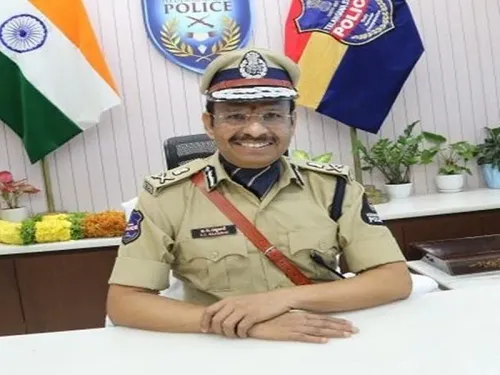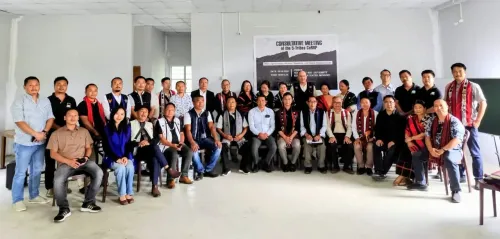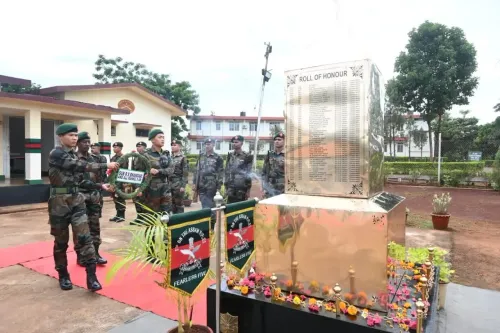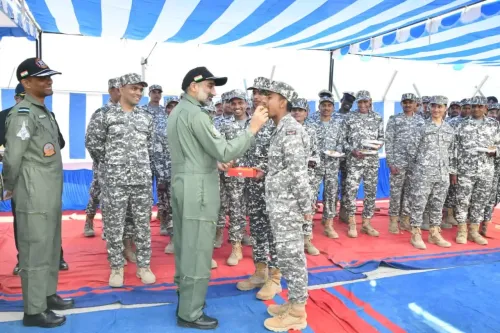Why is the TN BJP Targeting Chidambaram and Stalin Over Voter Roll Claims?
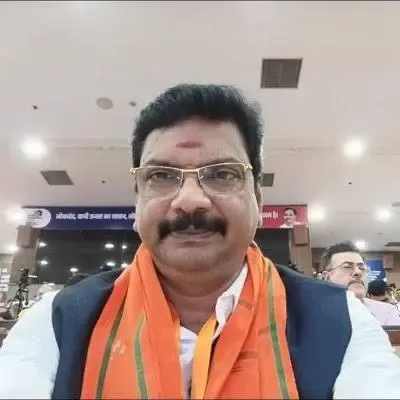
Synopsis
Key Takeaways
- Prasad criticizes Chidambaram and Stalin's allegations.
- Claims of voter manipulation lack substantive evidence.
- Voter roll updates are standard and legal.
- Migrant workers have the right to register in Tamil Nadu.
- Political leaders should prioritize governance over sensationalism.
Chennai, Aug 4 (NationPress) The spokesperson for the Tamil Nadu BJP, A.N.S. Prasad, has vehemently denounced former Union Minister P. Chidambaram and Chief Minister M.K. Stalin for making what he describes as “divisive and unfounded” remarks concerning the recent changes in voter rolls in Bihar and Tamil Nadu.
Prasad accused the Congress-DMK coalition of trying to compromise the integrity of the Election Commission of India (ECI) and divert attention from governance failures in Tamil Nadu.
Chidambaram had recently claimed that the ECI had removed 65 lakh voters from the electoral rolls in Bihar while adding 6.5 lakh new voters in Tamil Nadu, calling these actions suspicious and possibly illegal.
In response, Prasad stated that these accusations were made without a constitutional basis or proper electoral procedure reference, aimed at tarnishing the image of the Modi-led central government.
“These allegations not only lack any substantial evidence but are also a calculated effort to diminish public confidence in our democratic institutions,” Prasad remarked, adding that the Congress and DMK were indulging in “divisive and dynastic politics” to undermine the notion of a unified Bharat.
Prasad emphasized that the removal of voters in Bihar was part of a standard Special Intensive Revision exercise conducted by the ECI in accordance with Article 324 of the Constitution and the Representation of the People Act, 1950.
He pointed out that such exercises are essential for eliminating duplicate, deceased, or relocated entries from the electoral rolls, and that individuals affected by these changes have legal avenues to appeal for reinstatement.
Similarly, he dismissed Chidambaram’s concerns regarding the inclusion of 6.5 lakh voters in Tamil Nadu, asserting that migrant workers from other states have the constitutional right to register as voters in their current residence, according to Article 19(1)(e) and Section 19(b) of the Representation of the People Act.
“Labeling these voters as ‘non-residents’ is merely a rhetorical exaggeration, not a legal argument,” he stated.
Focusing on Tamil Nadu, Prasad asserted that the state is grappling with a significant governance crisis under the DMK government, marked by rising crime rates, drug abuse, custodial deaths, and corruption.
He cited the Anju Lavanya case as indicative of the deteriorating law and order situation and condemned the state government’s alleged suppression of peaceful protests and hunger strikes by dissatisfied trade unions.
“While the citizens of Tamil Nadu are facing real issues, Chidambaram and Stalin are preoccupied with promoting conspiracy theories and disparaging constitutional bodies like the ECI,” Prasad noted.
“This is mere political theatrics, not responsible leadership.”
He also accused Stalin of collaborating with West Bengal Chief Minister Mamata Banerjee to advance divisive regional politics and criticized both leaders for neglecting linguistic and governance issues within their states in favor of partisan rhetoric.
Prasad highlighted that the ECI operates with transparency, publicly displaying draft rolls and providing grievance redressal mechanisms.
He cautioned that casting doubts on the ECI’s impartiality without substantiating evidence undermines the credibility of the electoral process. Reflecting on the BJP’s performance in the recent general elections, Prasad stated that the people of India have overwhelmingly rejected the politics of division propagated by the Congress-DMK alliance and have entrusted Prime Minister Narendra Modi with a third consecutive term.
“This signifies a clear endorsement of the BJP’s vision for a Viksit Bharat by 2047—an inclusive, united, and developed nation,” he stated.
He concluded by urging political leaders to prioritize constructive engagement and address real issues such as voter awareness and accessibility, rather than engaging in defamatory narratives.
“The people of Tamil Nadu deserve leadership that is dedicated to justice, safety, and development—not sensationalism and slander,” he added.

